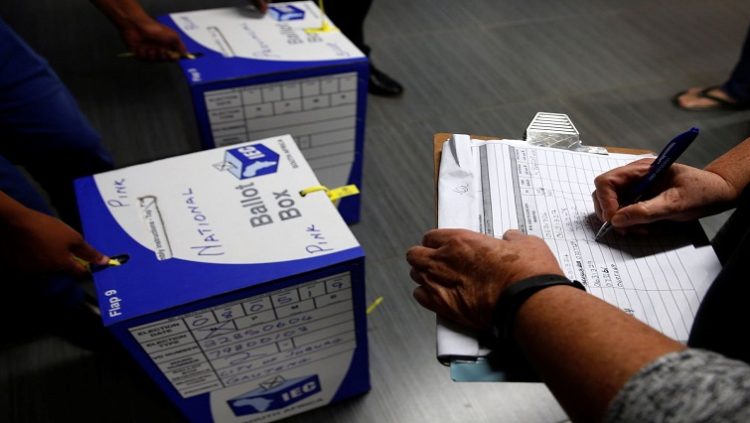Experts warn that the looming court challenges against the recently signed Electoral Act will have dire implications for the general elections next year. This as there has been another challenge to the recently signed Electoral Act.
The One South Africa Movement filed papers at the Constitutional Court on Friday over the Act. They allege that it favours political parties.
The One South Africa Movement is challenging the number of signatures required for independent candidates to stand in next year’s general elections.
Former Deputy Chair for the Independent Electoral Commission (IEC), Terry Tselane, warns that legal tilts will impede the Independent Electoral Commission’s ability to hold free and fair elections.
“Unfortunately, they are going to have a serious impact in terms of the IEC’s capacity to deliver a smooth election. When the electoral commission prepares for the elections, it requires at least 24 months to prepare for the elections. The uncertainty that has arisen as a result of this will create great difficulties for them because they’ve got to prepare logistics, they’ve got to train the electoral staff and they’ve got to make sure that all other processes in the electoral process are catered for and unfortunately, the uncertainty will create great difficulties for them to be able to deliver free and fair elections.”
The amendment was necessitated by the Constitutional Court’s judgment that found the Electoral Act unconstitutional for not allowing independent candidates to contest. The apex court suspended the ordered Parliament to remedy the situation.
President Cyril Ramaphosa signed the Bill into law in April, much to the disapproval of dissenting voices. Amongst the grievances expressed by independent candidates is the requirement of about 12 000 voter signatures to be eligible while political parties only need 1 000. However, the IEC’s, Masego Sheburi says the Electoral body’s hands are tide.
“The responsibility to pass laws rests with parliament. IEC only administers laws that have been passed by parliament. As we understand the Act as it currently stands, an independent means an individual so if you get more votes than what qualifies you for a seat, certainly but unfortunately, the other votes will not go towards any representation. However, because parties submit lists of candidates, they are able in this instance to aggregate seats because you can assign those seats to other members of the party. Whereas, an independent is only a single person so if they win three seats, they can’t hold three seats being a single person.”
ICA lodge papers over the Electoral Act:
Earlier this year, the Independent Candidate Association (ICA) also headed to the apex court over the new Act. It argues that it presents more hurdles for independent candidates to stand. Chief among their grievances is the need for independents to garner over 90 000 votes for one seat. Chairman of the Independent Candidates Association, Michael Louis elaborates.
“What they’ve done is they’ve actually made it impossible for independent candidates to stand. To get elected in Gauteng must get 91 000 votes. Wherein previous elections, the parliamentarians that are there need to get 43 000 which means there’s a 114% increase in what independent candidates must get.”
The Constitution stipulates that elections be held every five years and if there is to be an extension, South Africans must head to the polls within 90 days of the expiry of the tenures of office bearers. A further delay in the election, would need yet another amendment in the Constitution as Tselane explains.
“If the current Electoral Act is also declared invalid, I’d expect the IEC to approach parliament and then request parliament to change the constitution in order to allow them to have an election outside the constitutionally stipulated period because at the moment they are operating within a very tight timeframe and I don’t think if the Electoral Act is declared invalid, they would actually be able to do these elections within the constitutionally stipulated period.”
South Africa is expected to head to the polls in May next year.
Terry Tselane weighs in on the legal battle over amended Electoral Act:

